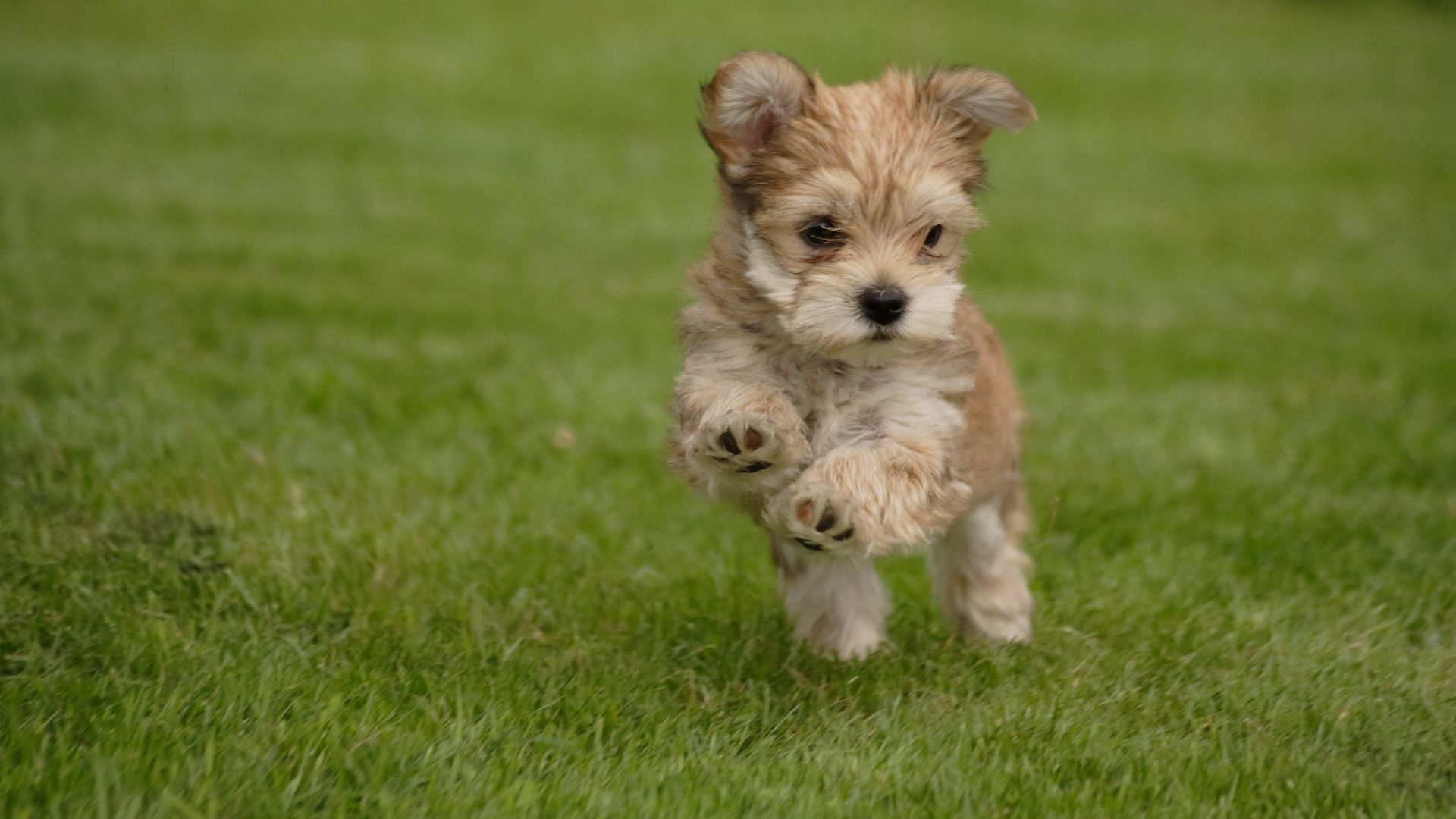There's nothing better than watching your puppy grow and develop in its first year.
They go from tiny little puppies that can't see or move to full-grown adults in the space of 12-18 months.
With each week that they grow, their requirements change. This includes health and nutritional changes.
That's why we've created our Puppy Development Timeline to help guide you through your puppy's first year.
Development Time Line For Your Puppy
1 Month
Your puppy's first month of life is just about adapting to the world around them. Their senses do not fully develop until around their third week.
For most of this month, your puppy will simply be feeding, learning new behaviours, and sleeping.
Your puppy should first be wormed at 2 weeks (this should be done every 2 weeks until they're 12 weeks old). It's important to get them worming tablets to prepare for this.
Within 3 weeks, puppies will begin weaning from their mother and they'll begin eating puppy food. If you'd like to learn more about puppy food and nutrition, read our blog here.
2-3 Months
Your puppy will continue to grow and learn throughout their second month, where they'll learn new social behaviours from their mother and siblings.
The mother will teach them discipline and show them that she's in charge.
This is important for your puppy's development as it demonstrates authority - this will be your job to demonstrate once the puppy has been separated from its family.
In their second month, your puppy will begin to walk if they haven't yet already. You should be handling the dog more often now to get them more comfortable with and trusting of humans.
Your puppy's first set of vaccinations is done at around 6-8 weeks old. Make sure to use this time to ask your vet plenty of questions.
Discuss the options of spaying/neutering your puppy - 5/6 months is the stage dogs should get this procedure, but now is a good time to start thinking about it and asking questions.
By the end of the second month, your puppy should be ready for adoption. Make sure you're confident they're ready to be separated from their mother and siblings though. It's important not to separate them until they're ready - otherwise, they may bark and bite more in the future.

3-6 Months
Your puppy will develop their teeth around this stage - that's when the fun starts! Prepare to have everything your puppy can get their paws chewed to pieces.
This includes shoes, cushions, their bed, and anything else they can get their teeth into. At this stage, you must get them toys to chew on.
These can focus your puppy's teething onto something else rather than an expensive pair of shoes! You can learn more about preventing your puppy from chewing in our blog here.
Your puppy will be whining at night when you leave them and you shouldn't be surprised when you come down each morning to an accident - toilet training takes time.
You can read our blog on toilet training your puppy here if you'd like some more information on this subject. It'll take time for your puppy to get through this stage so you must be patient.
Avoid being too harsh with them while gently easing them into your home in their third month.
They'll begin to play-bite to test your authority - you can be stern with them for the moment and just remind them who's boss.
You can gradually begin to discipline them as they get used to their new environment.
You can begin flea and tick treatments at around 12 weeks (read more about this in our blog here). Your puppy can then be spayed or neutered at 5 months.
They can also be microchipped at this stage which is important as it will allow you to find your dog easily if they go missing.
5 months is also when they can start eating food with bones.
Shop Popular Puppy Products
6-12 Months
This is when puppies begin to grow into adulthood. While they're still a puppy, they will look fully formed as an adult at around 12 months.
At this stage, they'll be a ball of energy and will be hard to control at times. Just remember to remind them of your authority.
At 12 months Small and normal-sized puppies can move to Adult food.
18-24 months
Larger puppies can now move onto adult large breed foods.

Puppy Shopping List
- Food and water bowls
- Puppy Food: We recommend Nice N Natural Pure. This brand is super-premium, 100% natural and supplies all the essential nutrients for a growing pup.
- Chew Toys
- Training treats
- Dog Bed
- Brush: It's important to regularly groom your dog, especially if they have thicker fur.
- Collar and lead: Our Doodlebone range includes colours and styles to suit every puppy.
- Tag: It's important to have a tag with your contact details on your dog, even if they're already microchipped.
- Puppy Training Pads: These are great for preventing messes in the house.
- Worming treatments
- Flea treatments (only for puppies over 12 weeks old)
Shop Popular Puppy Products
If you have more questions, reach out to our nearest petworld store or call us now

